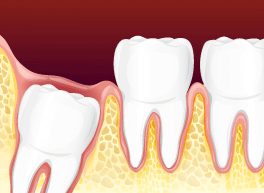In dental health, one field stands out as a cornerstone of oral well-being – Oral Surgery. This comprehensive guide will take you through oral surgery, spotlighting the most prevalent procedure: wisdom teeth removal. We’ll also delve into the distinctions between dental and oral surgery, the pivotal role of oral surgeons, and the comfort you can expect during these procedures.
Significance of an Oral Surgeon
An oral surgeon is a highly specialized dental professional with extensive oral and maxillofacial surgery training. Their expertise extends beyond wisdom teeth removal to encompass many procedures. They are pivotal in addressing complex dental and facial conditions ensuring patients receive optimal care.
The Most Common Oral Surgery
At the forefront of oral surgery procedures stands the removal of wisdom teeth. These third molars typically make their appearance during late adolescence or early adulthood. While some individuals might have sufficient room in their mouths to accommodate these additional teeth, many others encounter complications that necessitate their extraction.

The Importance of Wisdom Teeth Removal
Wisdom teeth often bring with them a host of problems due to their late arrival and spatial constraints in the jaw. Impaction, crowding, and misalignment of existing teeth are common issues associated with these molars. Wisdom tooth removal is necessary to mitigate these concerns and prevent potential complications.
Comfort During Oral Surgery
Patients often wonder about their comfort level during oral surgery. Rest assured that oral surgeons prioritize your well-being. Anesthesia options are tailored to your specific procedure and personal preferences, ranging from local to general anesthesia. These measures ensure your comfort throughout the surgical process.
How Long Does Oral Surgery Take?
The duration of an oral surgery procedure varies depending on its complexity. For instance, wisdom teeth removal typically spans 45 minutes to an hour. However, more intricate surgeries may require additional time. Your oral surgeon will provide a precise timeline during your consultation, addressing your concerns.
Demystifying Oral Surgery
Surgical procedure encompasses a diverse range of procedures addressing dental and facial conditions. These can include tooth extractions, dental implant placements, treatment for oral infections, and corrective jaw surgeries. The overarching goal of surgical procedure is to enhance oral health, alleviate pain, and improve facial aesthetics.
Is a Root Canal Considered Oral Surgery?
Root canal therapy, often called endodontic treatment, does not fall under surgical procedure. It is a dental procedure focused on removing infected or damaged pulp from within a tooth and sealing it to prevent further infection. Typically, general dentists with specialized training in endodontics perform root canals.
Dental vs. Oral Surgery: Discerning the Differences
Differentiating Dental and Oral Surgery
While dental and oral surgery share a common foundation, they differ in scope and complexity. Dental procedures typically encompass routine cleanings, fillings, and root canals. In contrast, surgical procedure involves more intricate procedures such as extractions, dental implant placements, and corrective jaw surgeries.
| Aspect | Dental | Oral Surgery |
|---|---|---|
| Scope of Procedures | Routine dental care such as cleanings, fillings, and root canals. | Complex procedures including extractions, dental implant placement, and corrective jaw surgery. |
| Training | General dentists are trained to perform dental procedures. | Oral surgeons undergo specialized training in oral and maxillofacial surgery. |
| Surgical Complexity | Typically non-surgical or minimally invasive. | Involves more intricate and surgical procedures. |
| Common Procedures | Cleanings, fillings, crowns, and routine check-ups. | Tooth extractions, dental implant surgery, treatment for oral infections, and corrective jaw surgery. |
| Anesthesia | Local anesthesia is commonly used. | Utilizes various anesthesia options, including general anesthesia for complex surgeries. |
| Practitioners | General dentists and hygienists. | Oral surgeons and oral and maxillofacial specialists. |
| Treatment Goals | Focused on routine dental maintenance and addressing minor dental issues. | Addresses complex dental and facial conditions, often requiring surgical intervention. |
| Typical Patients | Individuals seeking routine dental care and maintenance. | Patients with specific dental or facial issues necessitating surgical solutions. |
| Location of Care | Typically in a dental office or clinic. | May be performed in both dental and hospital settings. |
Understanding these differences can help patients make informed decisions about their dental and oral health needs. While general dentists excel in routine care, oral surgeons are specialists trained to handle complex surgical procedures.

In conclusion, is vital to maintaining and enhancing oral health. From addressing troublesome wisdom teeth to tackling complex dental and facial conditions, oral surgeons ensure your well-being. If you have questions or are contemplating an oral surgery procedure, do not hesitate to contact our experts at Serena Family & Cosmetic Dentistry. Your smile is our priority, and we are here to help you achieve and maintain optimal oral health while providing you with the most comfortable and supportive care possible.



